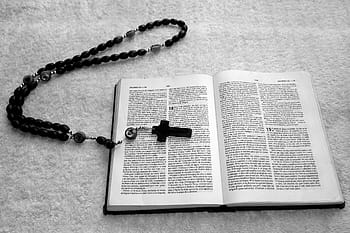If your sons keep My covenant and My testimonies which I shall teach them, their sons also forever shall sit upon your throne. Psalm 132:12
In the last reflection, we talked about pressure that comes from individual peers. This reflection will discuss peer pressure from a societal point of view, and how this pressure has caused us to become inauthentic on our relationships. This run counter to esteeming others highly. Because when we esteem others highly, we are encouraging them to be the best versions of themselves, rather than an inauthentic version of whatever the “society of the day” is pressuring them to be.
Many of us have seen the epic movie “Titanic,” with Leonardo DiCaprio and Kate Winslet. As much as that movie covered the historical event of the sinking of Titanic, the movie was so lengthy because it did a study into the character of the many different kinds of people on the ship. The story takes place in 1912, and is about the maiden voyage of a ship thought to be “unsinkable,” which would make the crossing of the Atlantic Ocean more quickly and more luxuriously than any ship before. The people who booked passage on the ship were mostly of the upper class of society. The movie was very good at showing the dichotomy between the first class passengers and those consigned to “steerage.” It was the upper class people who insisted on getting in the lifeboats first and didn’t want to return to rescue any of the “other people.”
There was a certain way that people were expected to dress, to walk, to talk, to hold their tea cup. They were willing to sacrifice comfort for image. And conversation remained surface, no one would dare show weakness for fear of being put out of the upper class. Mothers passed these “traditions” to daughters and fathers passed them to sons. Having watched the movie many times, I find this “society” with all of its unwritten rules to be not only inauthentic but actually oppressive.
Fast forward a hundred years and we see that not much has changed. We don’t care about tea and crumpets any more but there is pressure to own a certain brand of handbag, you wouldn’t be “caught dead” in a certain brand of shoes and most women cannot stand the thought of being seen without “make-up.” There is a saying “Keeping up with the Joneses.” This saying came from the fact that one of the most popular last names in America is “Jones,” and so this saying means that we need to keep up with everyone else.
And the fact is we don’t. Who says we need to? Everyone?
When I was a pre-teen, I didn’t so much care about my appearance or what anyone else thought. I was a geeky kid who wore a sweatshirt covered with patches from the space program. I wore my socks up to my knees and I wore braces. And I was happy.
When I got to high school, I felt “pressure” to look different. I felt compelled to have shorter socks and longer hair, and even had cosmetic surgery on my nose (my droopy cleft nose) at age 16 because people made fun of it. And as I look back at that time in my life, that pressure was horrible. In fact, without a doubt, high school was the hardest and worst four years of my life.
As I have gotten older, I have felt less pressure to be a certain way. Maybe that’s because I’ve matured, and probably it’s because I hang around people who don’t pressure one another to look a certain way. Now that I am about to have a teen, I know it’s just a matter of time before image starts becoming important to him and I’ll be reliving high school pressures again through him.
The point of today’s message is that it’s okay to be a “Smith” and not a “Jones.” It’s okay to not have a fancy handbag wear designer shoes. A car is a means by which we get from one place to another—it shouldn’t be a status symbol. And a home doesn’t need to be as clean as a museum. It’s a home because people “live” in it—it’s okay to have legos on the floor, or have the bedspread crooked. That’s what an authentic home looks like. And we don’t have to be “prim and proper” all the time, because that’s not what an authentic person looks like.
Dr. Martin Luther King, Jr. said in his famous “I have a dream” speech, that he dreamt that “little children will one day live in a nation where they will not be judged by the color of their skin, but by the content of their character.” To me, it’s not the color of skin, or value of clothes, or which neighborhood one lives in that garners respect. It’s the authenticity of character that draws me to people.
As we strive to esteem others highly, let’s encourage others to be authentic rather than inauthentic, by encouraging them to be the best versions of themselves rather than the inauthentic people society is pressuring us to become.
Lord, thank You for who I am. (List things about yourself that you are proud of and thank God for them). Help me to see the good in others. Help others to see the good in me. Help me to have strength of character and see the beauty in the character of others. Amen.
It’s okay to be a “Smith,” you don’t have to keep up with the Joneses!
The Revised Standard Version of the Bible is copyrighted 1946, 1952, 1971, and 1973 by the Division of Christian Education of the National Council of the Churches of Christ in the U.S.A. and used by permission. From the Online Chapel of the Greek Orthodox Archdiocese of America.




